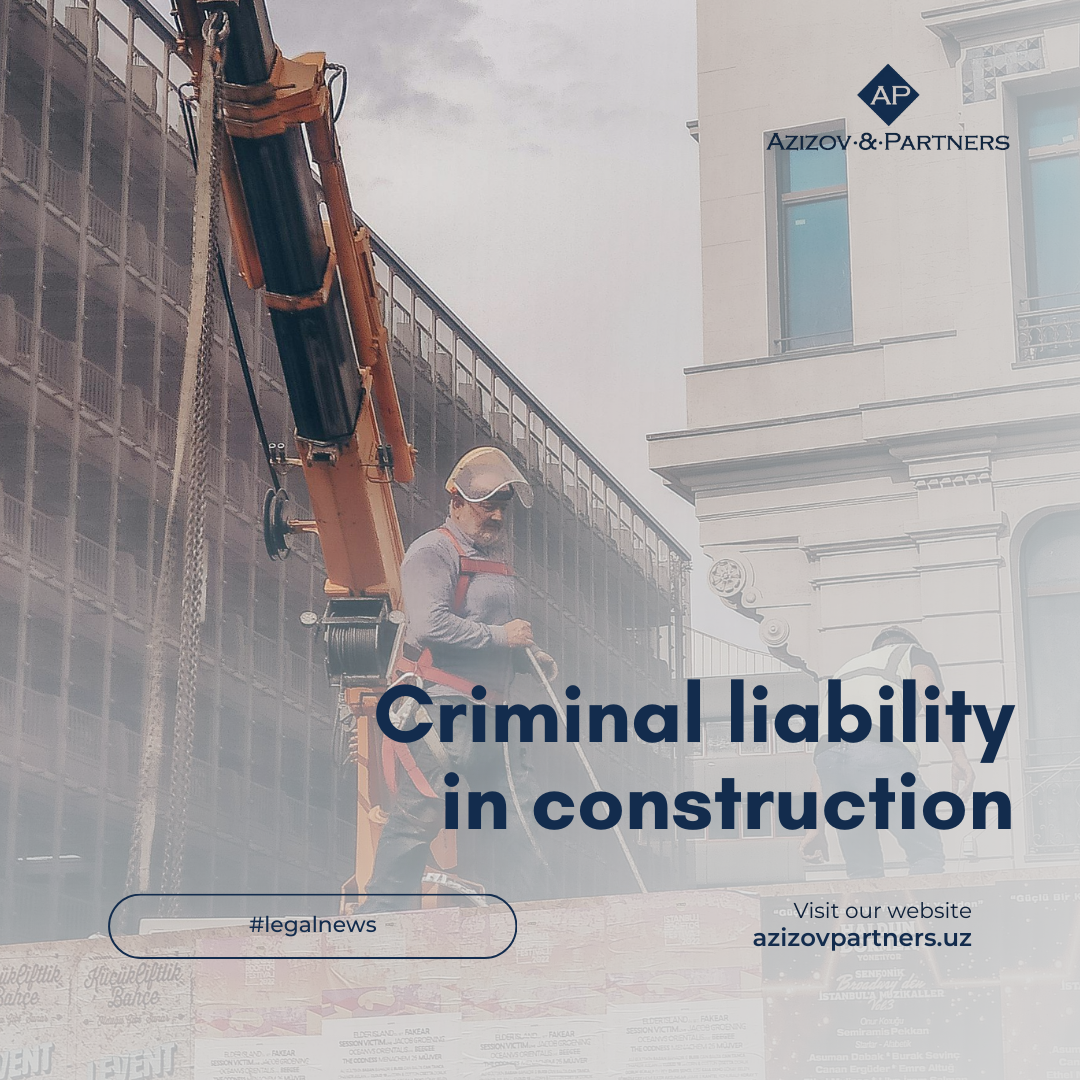July 9, 2024
Responsibility for violations in the construction sector will be tightened in Uzbekistan
The Legislative Chamber of the Oliy Majlis approved the draft law “On amendments to certain legislative acts of the Republic of Uzbekistan in connection with the improvement of the seismic safety system” in the second reading.
It is planned to introduce amendments and additions to the Criminal Code, the Code of Criminal Procedure, and the Code of Administrative Responsibility. These changes aim to strengthen criminal and administrative liability for violating legislation requirements on urban planning.
Thus, the sanctions of the current Article 229-3 of the Criminal Code “Construction, reconstruction and overhaul of buildings, structures or other facilities in violation of established prohibitions (restrictions)” will be strengthened. In the case of a repeat offense after the imposition of administrative fines for unauthorized construction contrary to master plans, violation of the rules for commissioning facilities, demolition of basement structures, ground floors of apartment buildings, and construction without permission, offenders will be criminally liable.
At the moment, the punishment for the abovementioned offenses under the Criminal Code is fine from 30 to 50 BRV (currently 1 BRV = 340 000 sum), mandatory community service for up to 36 hours or correctional labor for up to 3 years, but the new law will adopt additional tougher sanctions in the form of restriction of liberty from 1 to 3 years or imprisonment from 1 to 3 years, depending on severity and mitigating circumstances, if they are committed after the imposition of an administrative penalty. In addition, an offense that leads to the death of people or causes other serious consequences will be punished by restriction or imprisonment for a period of 3 to 5 years.
Another important change in the framework of the new draft law to prevent corruption is the introduction of a single amount of administrative fines, by changing the current norm, which determines the amount of the fine in the range from and to a certain amount. It is assumed that the adoption of the law will contribute to reducing offenses in the field of urban planning, reducing the number of illegal buildings, and improving the quality of construction.

